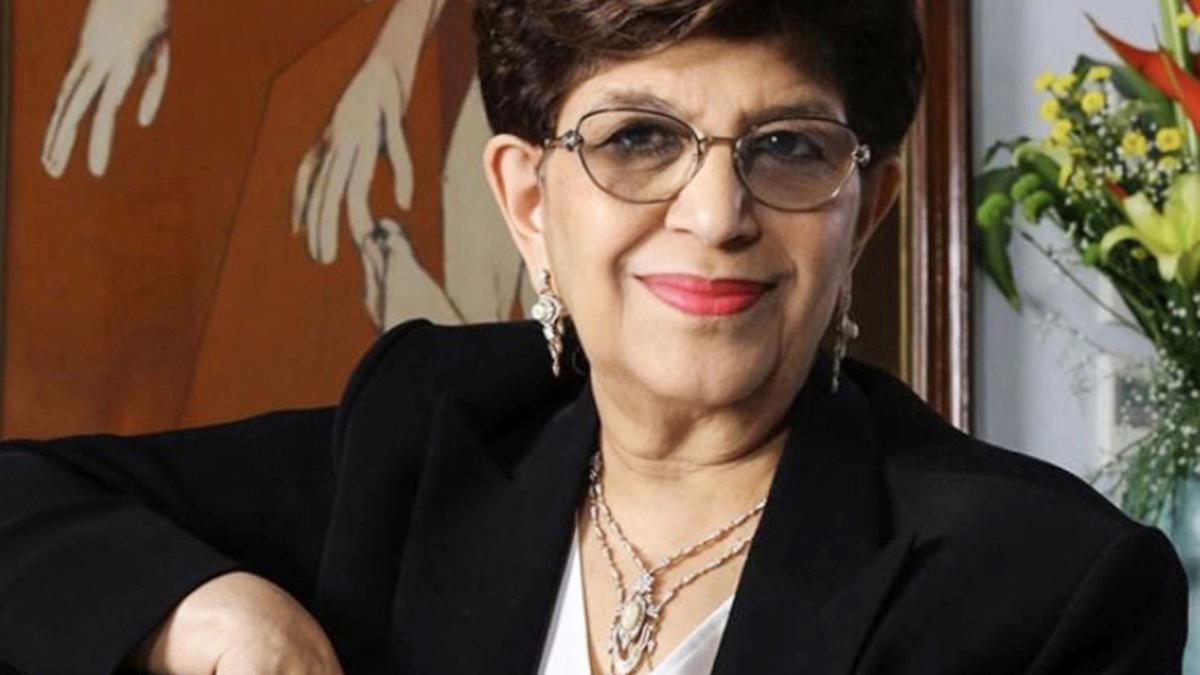
A life dedicated to the stage
The Hindu
Amal Allana: Her father’s daughter
As the daughter of legendary theatre personality and visual arts promoter Ebrahim Alkazi, Amal Allana grew up in a culturally-rich environment. “My father had the knack of making everyone his student. This began at home with my mother and us two children, who became his personal students.”
A theatre director with over 60 stage productions and former chairperson of the National School Of Drama (NSD), New Delhi, Amal released her father’s biography EbrahimAlkazi: HoldingTimeCaptive last year. She will speak about it in her conversation with journalist and author Kaveree Bamzai at TheHinduLitForLife festival in Chennai on January 19.
Amal says Alkazi believed the entire family should be involved in understanding and making art. She recalls, “He involved us in practically all aspects of his work, from the initial process of selecting a play, to assembling a cast, through rehearsals, to playing bit roles, to making posters, serving tea, ushering audiences to their seats, selling brochures, mounting exhibitions.”
She adds that Alkazi explained how the job should be undertaken at each stage, that it be treated as a sacred task, completed in time and done in the spirit of team effort. He believed that “an idea never remained at the level of an intellectual thought, but was materialised in action.”
Amal says she picked up various qualities from her father. She lists them, “To look beyond yourself and work with a spirit of selflessness. To fight for what’s valid. That theatre is teamwork and collaboration. That simple, effective and creative solutions can be found to practising theatre, that one cannot rely on anybody, that you need to be independent and, therefore, equip yourself in all fields.” He would also say work in any field of art is a long haul that needs to be doggedly and consistently pursued.
Alkazi (1925-2020) belonged to a family of Arabic descent. Born and raised in Pune, he shifted to Bombay to study at St Xavier’s College. This is where he met Sultan ‘Bobby’ Padamsee, who ran the English theatre company Theatre Group, and his future wife Roshen, Bobby’s sister. He was later trained at the Royal Academy Of Dramatic Art (RADA) in London, but began to head Theatre Group in Bombay after Bobby’s untimely death. Later Alkazi formed his own company Theatre Unit, before moving to New Delhi as director of NSD. Though he was involved with theatre most of his career, he was also a keen artist from his London days, later founding the Art Heritage Gallery in New Delhi with Roshen.
Amal’s biography covers Alkazi’s life path in granular detail. She says, “My largest resource other than interviewing Alkazi’s colleagues, friends and our relatives, was my lived experience with him. Everything I wrote is tested against what I personally knew and have observed about him over a lifetime. I have been careful to refer to incidents that are not merely hearsay, but where I was actually present — as a child, teenager, daughter, student and theatre practitioner.”













